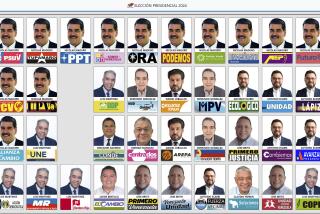They have a chance to clean house in upcoming elections. But many Iraqis are asking: ‘Why should I vote?’
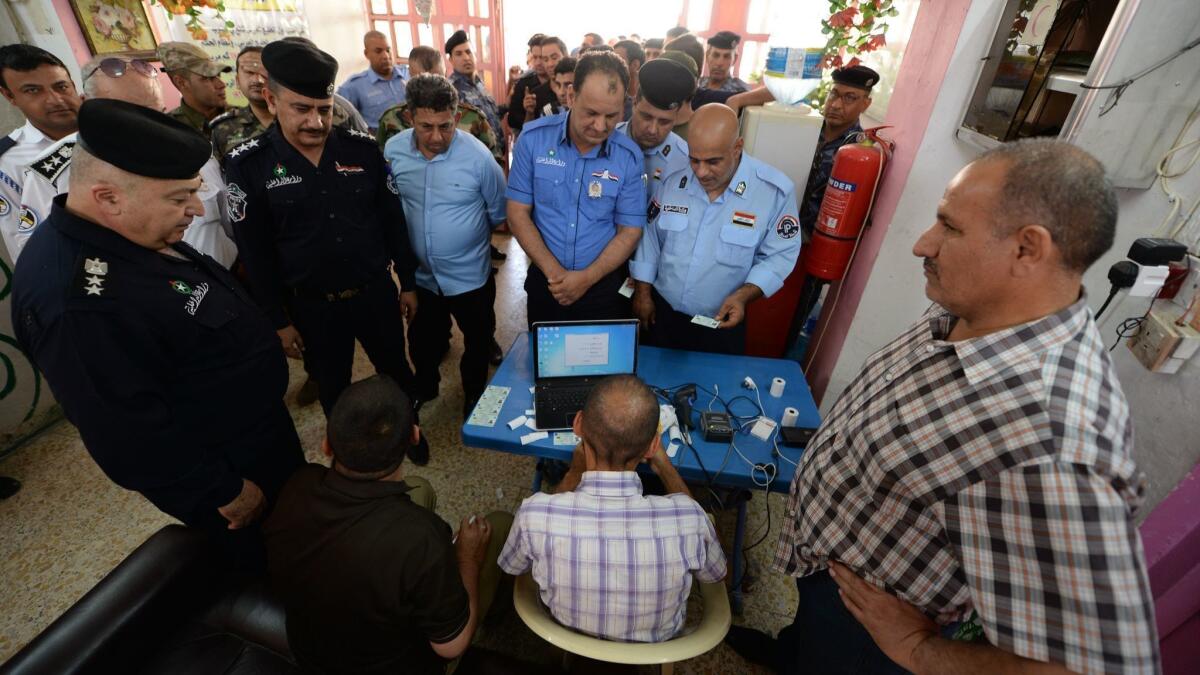
- Share via
Reporting from Baghdad — It was only a few weeks into Iraq’s chaotic electoral campaign when Grand Ayatollah Ali Sistani, the country’s top religious cleric and a figure revered by millions of Shiites, dropped a bombshell.
All officials, past and present, should not serve again, Sistani told fellow clerics, who told the media.
“He who has been tried should not be tried,” he reportedly said.
It was a wholesale rebuke of the country’s political class and its often corrupt ways.
In the weeks that followed, officials engaged in semantic somersaults, interpreting and reinterpreting Sistani’s words in an attempt to exempt themselves from the cleric’s ire, while Iraqis of all stripes took to social media, echoing his call to remove those in power.
But with the country’s parliamentary elections set for Saturday — the fourth since the ouster of Saddam Hussein in 2003 — many see the bid to usher in new leadership as a difficult if not impossible task. The old faces remain, reinforcing a sense of apathy in an electorate exhausted by 15 years of government mismanagement and malfeasance.
“Why should I vote?” said 32-year old Muntahtar Ahmad, who lives in the city of Basra, which is plagued by unemployment and crumbling infrastructure despite being the heart of county’s oil industry. “I graduated from a teachers’ academy, and all I do is walk around here selling tea all day. How is that fair?”
Mustafa Abu Ali, 63, a barber with a small shop in the city’s Ashar market, said he wouldn’t vote either.
“Politicians don’t come here,” he said. “They know their value in the street.”
The national mood belies what should be a relatively hopeful time.
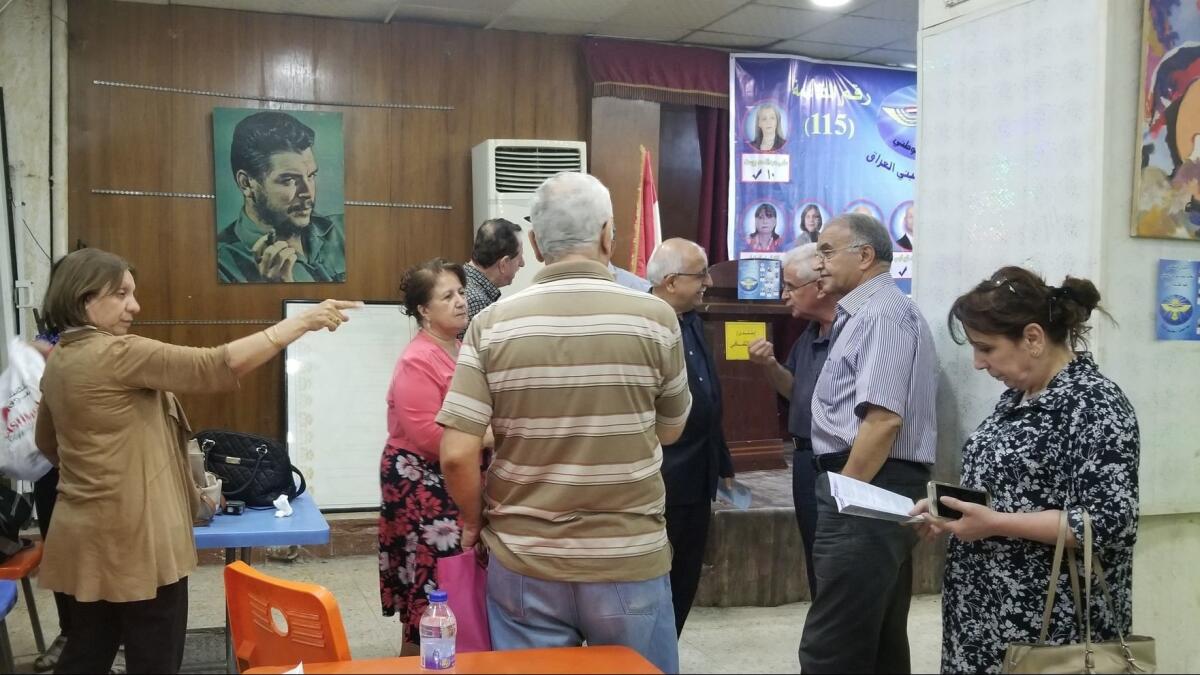
Islamic State jihadists, who less than four years ago easily overpowered government forces across wide swaths of the country, are all but defeated. Relations with Saudi Arabia and other neighbors have never been better. Even Baghdad’s once legendary nightlife has seen a resurgence.
“There’s optimism that things can only get better,” said Emma Sky, a senior fellow at Yale’s Jackson Institute for Global Affairs who served as the governorate coordinator of Kirkuk in 2003.
But she also pointed out that Iraq was in a similar position in 2010, just after Al Qaeda had been driven out of the country — and before Islamic State saw an opportunity to fill the void and captured a third of the country over the next four years.
“Iraq really is at a crossroads,” she said.
Voters don’t lack for choice of candidates, old or new.
Almost 7,000 hopefuls in 87 political parties, blocs and tickets are vying for the country’s 329 parliamentary seats. The candidates include more than 2,000 women, who are guaranteed a quarter of the seats. Nine seats are reserved for ethnic and religious minorities.
Candidates can be seen gazing, grimacing or smirking on campaign posters and banners plastered across what seems like every available light post, railing and overpass.
Once the parliament is elected, it chooses a prime minister, a post reserved for the country’s Shiite majority. In past elections, Shiites were relatively united. But their parties have splintered, forcing Shiite candidates to woo voters from other sects.
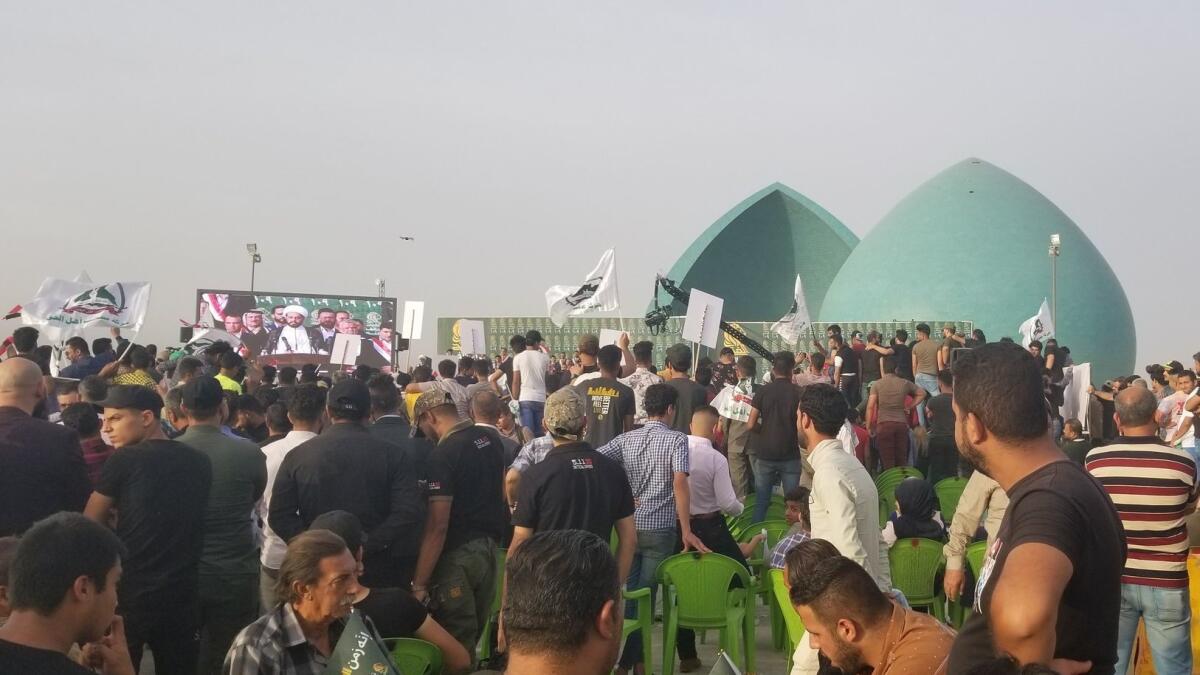
The current prime minister, Haidar Abadi, who is credited with defeating Islamic State, leads the Nasr coalition. Its main competition comes from the State of Law bloc, which is led by former prime minister Nouri Maliki, and the Conquest coalition, which is headed by Hadi Ameri, a top Shiite militia leader, and rooted in the Shiite-dominated paramilitary factions that were instrumental in defeating Islamic State.
Abadi is considered the front-runner and the leader most likely to bridge the divide between Iraq’s Sunnis and Shiites. That has pushed the U.S. to unofficially support his campaign for a second term, said Renad Mansour, an Iraq expert at Chatham House, a think tank in Britain.
“The U.S. and the West had this anti-ISIS story that morphed into a ‘Support Abadi’ policy,” he said, using an acronym for Islamic State. “So the funds, the efforts they put to countering ISIS’s narrative… all those resources are going now into supporting Abadi, because the decision has been made that he’s the best candidate to ensure Islamic State doesn’t return.”
Abadi’s ticket includes a number of popular Sunnis, and he’s expected to pick up the votes that are likely to elude Maliki and Ameri, polarizing figures with constituencies in the heartland Shiite areas of the south.
Meanwhile, another candidate, Muqtada Sadr, the fiery religious leader who ordered his militia to fight American troops during the U.S. invasion, is pushing a nationalist agenda and has allied himself with Communist and civil society groups.
But most of the candidates are relative unknowns. They show up in “meet-the-candidate” style election events, from the quaint town-hall affairs held by leftist parties in Baghdad — often under a Che Guevara portrait — to the massive election rallies.
Many voters dismiss the newcomers as window dressing for the old guard’s continued dominance.
“Who will I vote for? No one, all the ones I see are the same thieves,” said 66-year-old Ahmad Fuad Aathami, a retired civil servant in the Sunni-dominated Adhamiyah neighborhood of Baghdad.
“The faces won’t change, the heads of the bloc won’t be removed.”
Raed Ahmad Hamid, a 29-year old former police officer from Qaim, said he will boycott the elections to protest what happened to him and more than 4,000 other officers after Islamic State overran their city in 2014 .
Suspected of collaborating with the jihadists, they had their salaries cut off. Though they have since received an amnesty, they continued to be barred from active duty.
“Candidates came here and promised us everything, but we saw nothing,” said Hamid, who now lives in a refugee camp near the city of Fallujah. “For more than three years we’ve done nothing but sit here and have no work.”
“My colleagues and I are putting an X on the ballot,” he said.
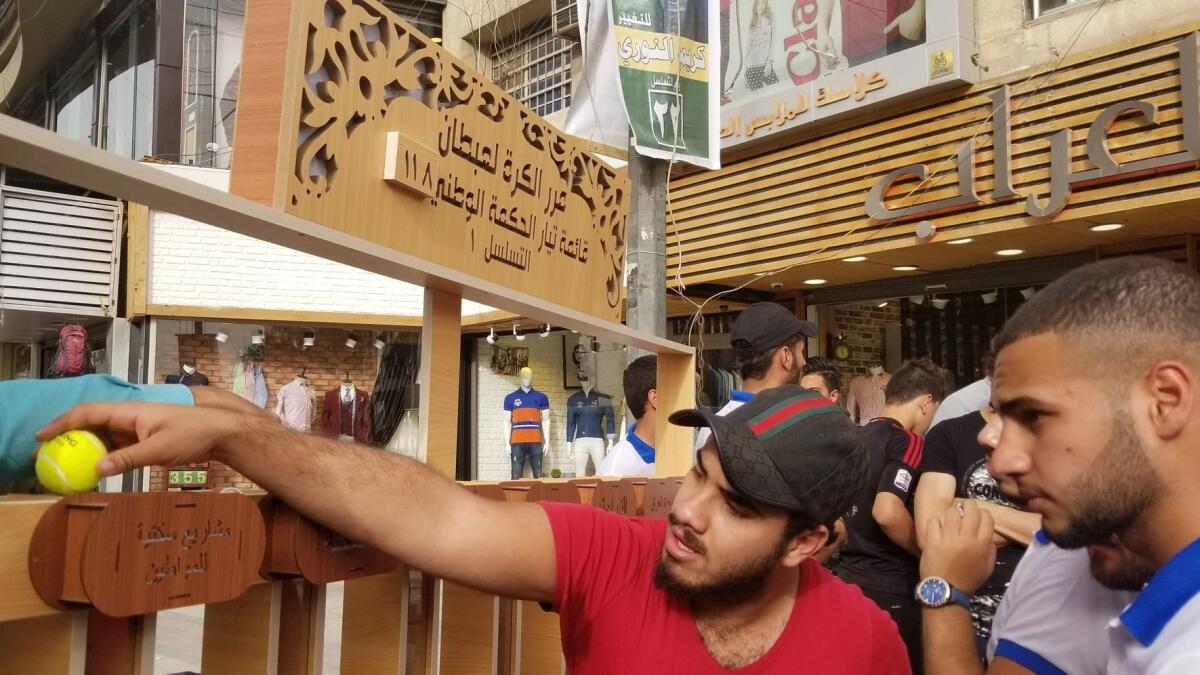
Other disenchanted voters also point out that the Sainte Lague system — a complex scheme that is supposed to take into account a variety of factors to help smaller parties reach parliament — has been modified for use in Iraq to favor larger groups.
Candidates who don’t pass a minimum threshold have their votes added to the top candidate.
“One of the reasons why I’m boycotting the election is because the law is flawed,” said Qassem Ghani, chief editor of the Iraqi Ghad Press outlet. “I vote for someone, and I’m against the top guy, and still those votes go to him?”
But for the vast majority of Iraqis, the sense of apathy reflects a lack of faith in a system that has failed them too often.
Iraq’s oil riches have been siphoned into officials’ pockets, leaving most Iraqis with only a few hours of electricity a day and trash-strewn streets that haven’t been paved since before the U.S. invasion.
Electoral speeches this season have focused primarily on fighting graft, with some of the more militaristic candidates threatening to fight those on the take with the same zeal they once fought Islamic State.
Thanassis Cambanis, a Beirut-based senior fellow at the Century Foundation think tank, said that although there are realistic possibilities for improving how the country is governed, “Iraq will never overcome endemic pathological corruption until it has an opposition in government.”
“Every government has been a grand coalition, with everyone taking a ministry and taking part in the feeding frenzy rather than be opposition,” he said.
Laith Khafaji, a first-time candidate with the Iraadah ticket, said the campaign season comes with a paradox: “All the major parties talk about corruption. Nasr, Maliki, the Sadrists, Sunnis… they all talk about it. So then who is the corrupt one? The citizen? It’s a bewildering question.”
Khafaji’s plan to fight corruption was a simple one: Win the seat of someone who was corrupt.
Bulos is a special correspondent.
Twitter: @nabihbulos
More to Read
Sign up for Essential California
The most important California stories and recommendations in your inbox every morning.
You may occasionally receive promotional content from the Los Angeles Times.
